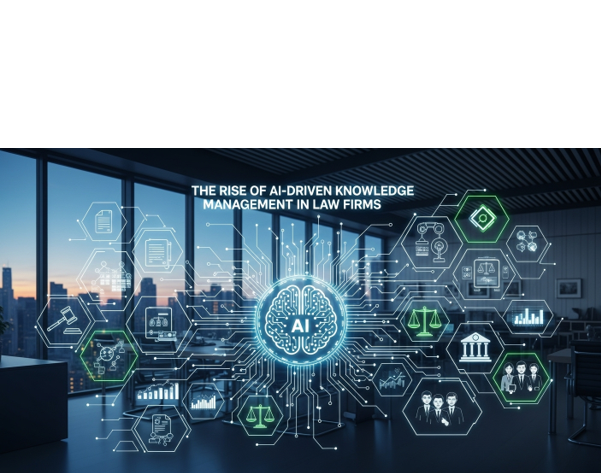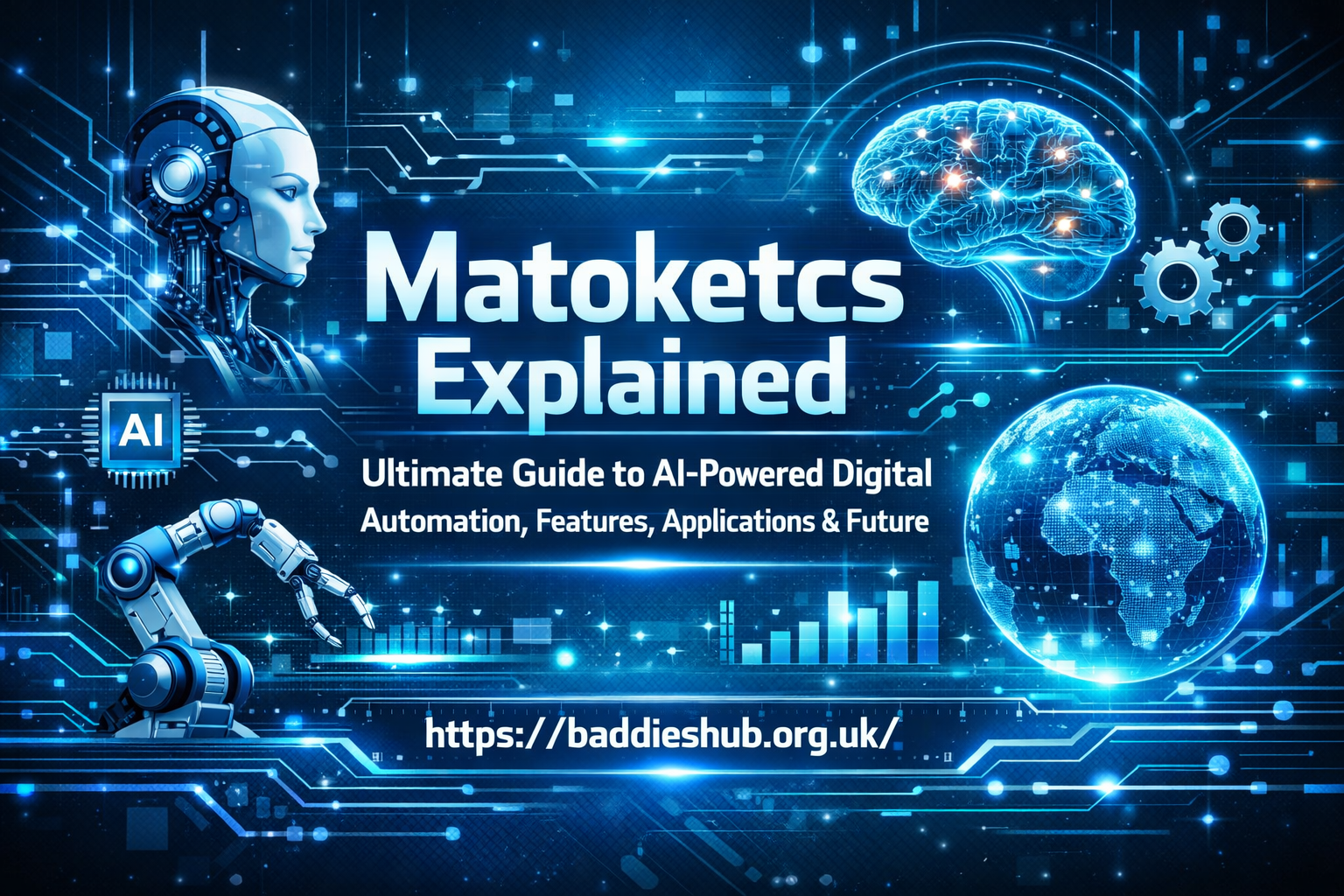Knowledge has always been the backbone of the legal profession. Every argument, strategy, contract, and courtroom decision depends on the ability to retrieve the right information at the right moment. For decades, law firms have relied on libraries, research databases, internal memos, document management systems, and accumulated institutional wisdom to maintain their competitive edge. But by 2026, traditional knowledge management is undergoing a profound transformation. The rise of AI-driven knowledge management has reshaped how law firms store, access, categorize, and operationalize knowledge, turning static information into dynamic intelligence. What was once a manual, siloed, and time-consuming process is being replaced by intelligent systems that learn, adapt, and evolve.
The integration of AI for legal workflows has accelerated due to the exponential growth of digital documents, the increasing complexity of modern cases, and client expectations for faster, more accurate outcomes. Firms are now shifting from basic document retrieval tools to advanced systems powered by machine learning, natural language processing, and predictive analytics. These systems do far more than organize information they extract meaning, identify patterns, provide contextual recommendations, and deliver instant insights. This has created a new era where lawyers can make smarter decisions with unprecedented speed and precision.
How Knowledge Management Evolved in Law Firms
For decades, knowledge management meant ensuring lawyers had access to legal research tools, precedent libraries, template banks, and historical case files. Paralegals and knowledge managers curated these materials manually, updating repositories and sharing best practices across teams. While valuable, these systems were limited by manual input and human memory. Documents often became buried in folders, subject matter expertise remained locked in departments, and lawyers frequently recreated work because they could not find existing materials.
The explosion of digital workflows changed the landscape, but even with sophisticated document management software, the challenge persisted: information volume grew faster than the tools designed to organize it. This gap paved the way for legal AI solutions that could analyze, link, summarize, and categorize knowledge at scale. AI didn’t just improve storage, it revolutionized how knowledge is created, accessed, and used.
AI as the New Knowledge Engine
AI-driven tools use natural language processing to understand legal context the way humans do, but with machine-level speed. These systems ingest thousands of documents, briefs, contracts, opinions, client communications, transcripts, and turn them into structured knowledge networks. AI doesn’t simply tag documents; it interprets them, extracts key principles, identifies legal issues, and predicts which information will be relevant to future matters.
This shift means lawyers no longer waste hours searching through repositories or reviewing repetitive documents. Instead, AI systems proactively suggest relevant cases, highlight potential risks, and provide summaries tailored to the specific issue a lawyer is handling. When combined with AI for legal research platforms, these tools give law firms a unified intelligence layer that reduces redundancy and increases efficiency. Knowledge becomes actionable, not archived.
Transforming Legal Research Through AI Knowledge Engines
Legal research is one of the biggest beneficiaries of AI-driven knowledge management. Traditional research relies on keyword searches and manual filtering through lengthy cases, statutes, and commentaries. AI-enhanced systems, however, understand legal queries with contextual awareness. They analyze the semantic meaning behind questions and deliver more accurate results by evaluating intent and legal nuance.
When a lawyer searches for a specific contractual liability issue or a precedent involving regulatory breach, AI models surface not only direct matches but also related arguments, emerging trends, and cross-jurisdictional patterns. AI can identify how courts have historically interpreted similar clauses, predict likely judicial outcomes, and assess jurisdictional variations. This dramatically reduces time spent on research and improves the depth of insights. As legal ai becomes more integrated with court data and litigation analytics, it transforms research into a powerful decision-making tool.
AI-Powered Expertise Mapping
One of the most underrated capabilities of AI-driven knowledge systems is expertise mapping. In large law firms, identifying which lawyer has experience with a particular issue can be surprisingly difficult. AI solves this by analyzing work product, billing entries, case histories, collaborative documents, and internal communications to map expertise across the firm. By 2026, firms will use AI to match the right lawyer to the right matter instantly.
This boosts collaboration, reduces bottlenecks, and ensures clients receive the most qualified support. Expertise mapping also helps firms identify training opportunities, reduce skill gaps, and build stronger internal knowledge networks. It transforms institutional knowledge from an intangible asset into a strategic resource.
Improving Client Service and Matter Strategy
Clients want fast, accurate answers and AI-driven knowledge management delivers just that. When firms integrate AI into their client service workflows, they can provide early risk assessments, faster contract reviews, and more informed litigation strategies. AI systems compare current matters with previous cases, identify hidden risks, highlight key arguments, and evaluate the success of different strategies based on historical outcomes.
This leads to enhanced client confidence, improved transparency, and more competitive fee structures. Many firms use legal AI tools to generate strategic insights before meetings, summarize key findings, and prepare data-driven recommendations. The result is a more proactive and forward-thinking practice.
Enhancing Document Drafting and Review
Document drafting is another area where AI-driven knowledge management excels. Lawyers no longer start from scratch. AI identifies relevant templates, retrieves past successful documents, and analyzes clause variations across industries. When drafting contracts or legal briefs, AI suggests language, highlights inconsistent sections, flags missing provisions, and ensures alignment with firm standards and regulatory requirements.
In review workflows, AI detects anomalies, compares terms against prior agreements, and visualizes the potential risks associated with specific clauses. Lawyers maintain full control, but with AI continuously supplying insights, drafting becomes faster, more accurate, and more consistent. The fusion of document intelligence and knowledge management builds a foundation for higher-quality legal output.
Preserving Institutional Knowledge as Senior Lawyers Retire
One of the most significant challenges for law firms is the loss of institutional wisdom when senior lawyers retire or transition out of active practice. Traditionally, these lawyers carried decades of experience unwritten interpretations, negotiation techniques, client history, and contextual reasoning that younger associates could not easily replicate. AI-driven knowledge systems provide a solution by capturing this expertise through pattern recognition, work analysis, and intelligent archiving.
As AI analyzes past work product, correspondence, and strategic decisions, it creates an evolving knowledge graph that embodies the collective experience of the firm. This ensures continuity, improves training, and strengthens firm culture. The knowledge once stored in individual minds becomes part of the firm’s shared intelligence.
Real-Time Collaboration and Knowledge Sharing
AI has also transformed how teams collaborate. Knowledge is no longer confined to specific departments or practice groups. AI platforms enable real-time sharing of insights, linking related matters, and recommending resources across teams. When one group uncovers a new legal interpretation or procedural strategy, the AI shares this knowledge universally. This cross-pollination reduces information silos and promotes a culture of continuous learning.
With remote and hybrid work environments becoming the norm, AI ensures that teams stay connected, informed, and aligned. The ability to access structured insights anytime and from anywhere contributes to operational efficiency and improved client outcomes.
Mitigating Risk Through AI-Driven Knowledge Intelligence
Law firms face significant risks related to compliance, conflicts of interest, confidentiality, and incorrect legal advice. AI-driven knowledge systems help mitigate these risks by monitoring documents, detecting inconsistencies, and providing early warnings. If a lawyer drafts a clause that contradicts firm policy or introduces potential liability, the AI flags it instantly.
AI can also detect trends in client issues, potential conflicts, and emerging industry risks. With advanced predictive models, firms can respond proactively to legal threats, ensuring clients remain compliant and protected. The integration of AI for legal risk-management tools marks a major shift in how firms prepare for and respond to challenges.
The Ethical Considerations of AI-Driven Knowledge Management
As firms embrace AI, ethical and security concerns remain central. Lawyers must ensure that AI tools are transparent, reliable, and compliant with data privacy obligations. Human oversight remains essential, especially when AI provides recommendations that may influence major legal decisions. The legal profession is adapting to a future where legal AI serves as a partner rather than a replacement. Ethical guidelines ensure that lawyers retain control, accountability, and judgment over every decision.
The Future of AI-Driven Knowledge Management
The future of knowledge management in law firms is intelligent, predictive, and deeply connected. By 2030, AI is expected to integrate with client dashboards, litigation prediction engines, business intelligence tools, and automated drafting assistants. Firms will rely on AI not only to store knowledge but to create it. AI-generated insights will guide strategy, inform client consultations, and reshape legal service delivery.
This evolution signals a broader cultural shift. Firms that embrace AI-driven knowledge management gain a competitive edge through improved efficiency, higher-quality output, and a stronger ability to scale. Those that resist may find themselves unable to keep pace with modern expectations.
Conclusion
The rise of AI-driven knowledge management marks one of the most important transformations in the legal industry. By combining advanced analytics, intelligent automation, and contextual understanding, AI systems are elevating how law firms capture, store, and use knowledge. These tools support better legal research, enhance collaboration, preserve expertise, and strengthen client service. Far from replacing lawyers, the integration of AI for legal solutions empowers them with deeper insights and greater strategic capability. As legal AI continues to evolve, law firms that embrace this shift will position themselves as leaders in an increasingly competitive landscape.




